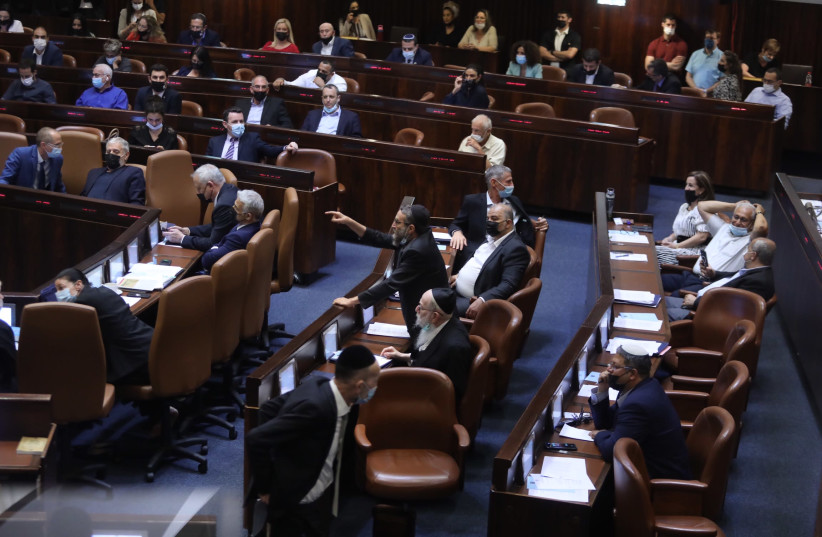The Knesset Finance Committee voted on Tuesday to raise the salaries of all central public figures including Knesset members, ministers and judges by 5.1%.
The salaries were frozen during the COVID-19 pandemic and were not updated for three years. According to an automatic salary update mechanism, their salaries were supposed to rise by 12.5%.
A moderated rise
However, an external committee that is responsible for setting the salaries of MKs recommended that the raise be moderated, out of sensitivity to public sentiment.
The monthly salary for MKs after the update is now NIS 47,583.
Some Knesset members expressed their discontent, and the final decision was that the salary update for MKs would be reduced – but so would those of other central public figures, including the president, ministers and judges.

Committee chairman MK Moshe Gafni said that while he agreed to the moderated raise, he did not understand why the salaries of High Court Judges were higher than those of ministers or Knesset members. Gafni called the situation "distorted" and called for the issue to be regulated in an orderly, proper discussion.
Likud MK Eli Dalal also called the salary issue "distorted".
Discussions about the salary
"Knesset members were not born as such. There are those who as independents made two or three times [the salary of Knesset members]," Dalal said. He complained that seniority in the Knesset was not taken into account, as seasoned Knesset members and new ones made the same amount.
Shas MK Yinon Azulay expressed his opposition to the fact that the "limelight was always on Knesset members," while the High Court Chief Justice earned double. He called on the salaries of MKs to be linked to those of judges, and, like Dalal, for seniority to be taken into account.
Ra'am MK Iman Hattib Yassin said, "We are talking about an update, not a raise. We are here as public servants but we also have to make a living. We work here hour after hour, we work hard and the public should see this," she said.
Representatives of the civil and religious court authorities requested that the decision be delayed so that they could try to come up with a better option. Gafni responded that this was a "message to the public" that should be made not just by MKs but also by other central public figures.
Gafni agreed that it was worth holding a deeper discussion, but that in the meantime the committee would vote to reduce the raise for judges and ministers as well.
The president's salary after the update is now NIS 67,971; the prime minister's salary is 59,218; the High Court Chief Justice's salary is NIS 109,304; and the Knesset speaker and State Ombudsman are now NIS 53,257.
